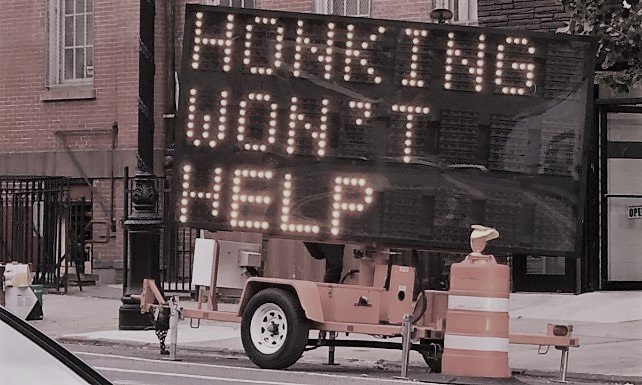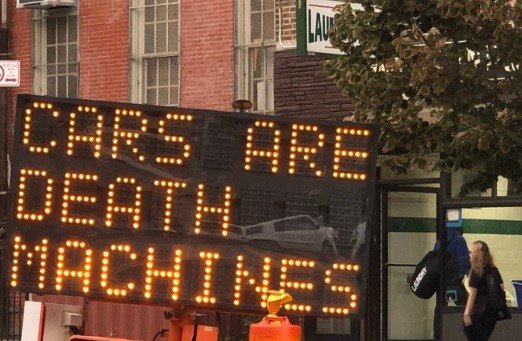A new trend seems to have emerged among hackers. A few days ago network security experts reported that some electronic traffic signs placed around a construction on one of the major avenues at Brooklyn, New York, were altered to show somehow aggressive messages against drivers. Apparently, these incidents are still present.

As Jalopnik digital media platform reports, that time, traffic signals showed messages like “Stop using your car” or “Cars ruin cities”. After little research, it was revealed that these traffic signals are not operated by the New York Department of Transportation: “The signals belong to the contractors in charge of construction,” mentioned department of transportation representatives. A short time later, the signal operators restarted them to delete the modified message.
However, those in charge of this hacking campaign are still active as, just a couple of days ago, some signs placed on streets around the same construction showed slightly more aggressive messages. “CARS ARE DEATH MACHINES”, “CARS MELT GLACIARS” are some of the messages recently shown.

New York Department of Transportation figures mention that nearly 160 people have been killed in the city as a result of traffic incidents, which has become a serious risk to pedestrians and cyclists in the zone.
Regardless of the intentions of hackers, network security experts emphasize that the systems that control these devices are incredibly easy to hack, as the default password is the same for all devices from a single manufacturer. To this we must add the low information security awareness of the contractors, who do not even bother to change the factory password.
There are few similar incidents recently registered. A few days ago, network security specialists at the International Institute of Cyber Security (IICS) reported that some traffic signs placed on Texas streets were manipulated to display a message against the President Trump’s administration.
Another recurring case is the use of billboards to display inappropriate content. On multiple occasions, threat actors have hacked the systems that control these screens to display pornography in shopping malls, large avenues and other public spaces. Although there does not appear to be criminally motivated attacks, this is a sign of how poorly designed are security mechanisms in little complex systems.

He is a well-known expert in mobile security and malware analysis. He studied Computer Science at NYU and started working as a cyber security analyst in 2003. He is actively working as an anti-malware expert. He also worked for security companies like Kaspersky Lab. His everyday job includes researching about new malware and cyber security incidents. Also he has deep level of knowledge in mobile security and mobile vulnerabilities.











